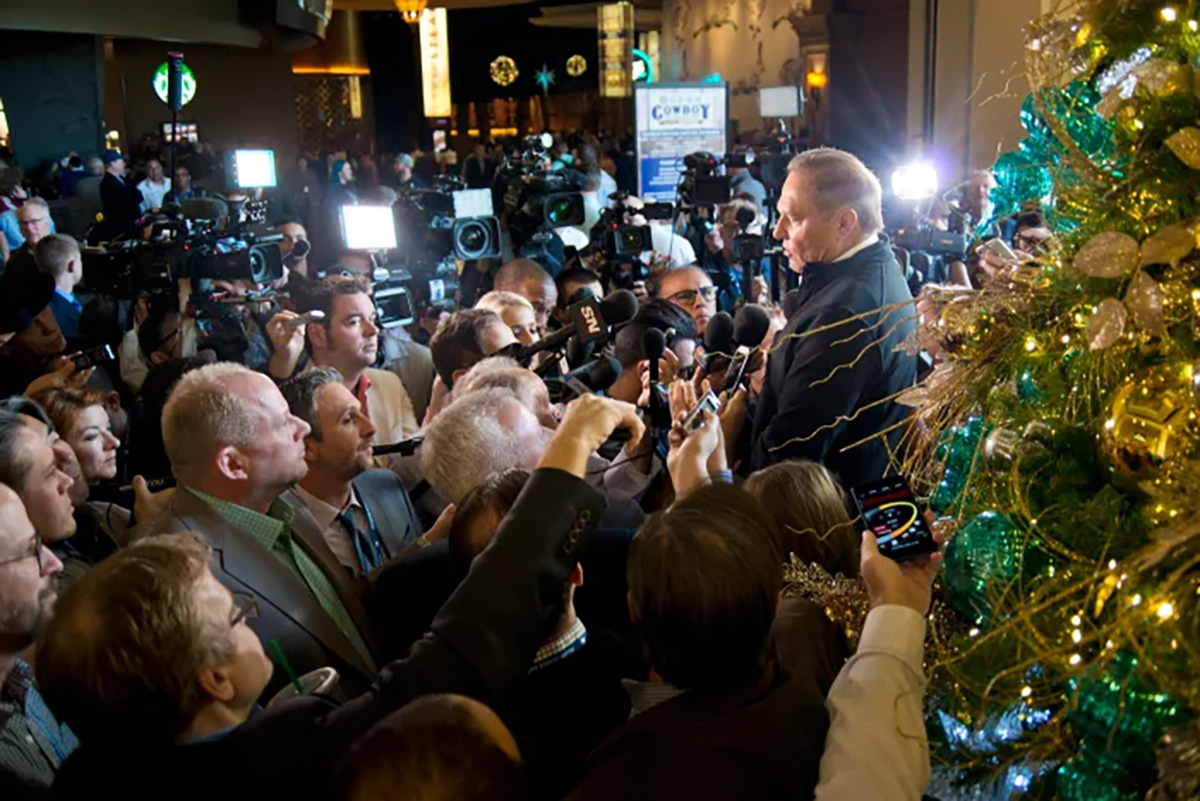There are several stars still on the free agency market with the first regular season game being played on March 20, between the Los Angeles Dodgers and San Diego Padres in South Korea.
The stars still on the market have been put into a label. The Boras four. Free agents Cody Bellinger, Matt Chapman, Blake Snell and Jordan Montgomery are all Boras Corporation clients.
That group also excludes 6-time All-Star and 3-time Silver Slugger and free agent J.D. Martinez who is coming off of an All-Star season with the Dodgers but is 36 and aging.
Why is this group of free agents who combine for a total of 10 All-Star appearances, 5 Silver Slugger awards, 5 Gold Gloves and 2 CY Young awards still available so late in the offseason?
Fans of baseball and members of the media have split opinions. Some blame agent Scott Boras for not being able to complete contracts for his star players, while some argue it is the fault of the owners and front offices of MLB clubs for not pursuing these players more aggressively.
It’s fair to say that both sides of the argument bring a valid point. Representing the best available players on the market with the season looming so quickly is not the best look ever. Agents and players have all the right in the world to negotiate for a price that they think represents their play accurately.
There comes a point where a realization starts settling in that you might not get the deal you wanted initially. In this case, I don’t think this is Boras’s fault for a slow-moving offseason especially this late.
With Boras representing some of the best players in the game like starting pitchers Gerrit Cole and Corbin Burnes and infielders Carlos Correa and Bryce Harper, Boras’s goal is to get the best value for his players.
Sometimes that goes well for Boras and his clients, and sometimes it doesn’t go as smoothly. One example is the case of free agent third baseman Matt Chapman. Before reaching free agency Per Scott Mitchell of TSN, the Toronto Blue Jays offered Chapman a deal of over 100 million dollars over 4 to 5 years.
Chapman and Boras ended up rejecting the deal and entered free agency in the offseason. Now Chapman most likely will not get a multi-year deal and could get a short-term deal. Sure, he could’ve taken the guaranteed money and been a Blue Jay for years.
I see it as Boras putting trust in his clients and letting them prove why they deserve the money they want. Circumstances happen where players underperform or get injured and that is part of the gamble.
Agents go off of the trust they have for their players and how they will perform. I don’t think it is fair to criticize players and agents for wanting to test the open market and see what opportunities open up for them
A bigger issue pertaining to free agency in my eyes is the lack of suitors for these stars in the game and even players who aren’t regarded as stars but can contribute to a team. There are a lot of rumors and smokescreens involved in free agency, but what is true this year is the lack of substantial offers and interest in free agents.
It starts with the owners and the front office. Earlier this week Tom Ricketts, the owner of the Chicago Cubs spoke to the media. Asked what it would take to raise revenue, and to potentially target one of the big names on the market, Ricketts responded by saying “more revenue.”
This is an exact case of teams tiptoeing their way out of spending significant money to help improve their clubs. Per Forbes, The Chicago Cubs in 2022 ranked 4th in revenue, standing at 451 million dollars. The Ricketts family according to Forbes have a net worth of $3.7 billion.
Other big market teams like the Los Angeles Angels and San Francisco Giants 2024 projected payrolls are $42 million and $32 million under the 2023 payroll. Both teams missed the playoffs last year and have glaring holes on their roster that need to be filled.
A sport dictated financially by where you are located and the size of the city you play in who owns the club, teams should not operate in the way they do. Teams can afford to pursue multi-year deals with committed money, but in some cases, they don’t.
It’s an exploitation of the MLB free agency market. As time quickly passes, agents and players have to eventually settle so their players can get ready for the season and get acclimated to the team.
A point I see thrown around is that players are asking for too much money and that they aren’t good enough for what they want. Either there are injury concerns, age concerns or nit-picky concerns of play on the field.
That would be fair if there wasn’t much talent on the market. That just isn’t the case. The holding up of the “Boras 4” has caused solid contributors on the open market to be unsigned. Veterans Tommy Pham and last year’s All-Star Michael Lorenzon are options that almost every club in baseball can afford.
They are dependable and good leaders in the clubhouse. Since teams are waiting for the star players to sign, these veterans have been left on the market waiting for an opportunity.
In conclusion, there needs to be multiple fixes to how the offseason flows to intrigue fans, but it starts with teams and their lack of motivation to spend the money that they have.
Editor’s note: Cody Bellinger signed with the Chicago Cubs for 3 years for $80 million on Feb. 26.
Benes can be reached at b[email protected]u.







